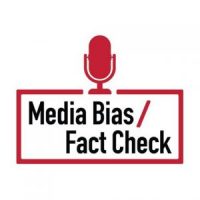The 2 studies (out of 78) studying masks and covid both said the same thing: masks are useless. More false claims propping up junk science from the usual suspect(s).
In the end, there was no statistically significant difference between those who wore masks and those who did not when it came to being infected by Covid-19. (The awesome part is that 1.8% of the masking group caught covid. Those in the 46% that wore those 'exactly as instructed' found their positive numbers rise to 2.0% compared to the control group at 2.0%. Virtually indistinguishable!!) 🤣🤣🤣

 www.spectator.co.uk
www.spectator.co.uk
The fact that the data are based only on testing people who report symptoms introduces a possible bias: Whether or not a person believes they have ‘covid symptoms’ is extremely subjective when the symptoms are minor. If two people – a mask wearer and a non mask wearer - have very similar minor symptoms, then intuitively it seems it is less likely that the mask wearer will report having covid symptoms (since they presumably believe wearing the mask avoids catching covid). Even a very small increase (e.g. by 3 or 4%) in mask wearers
reporting symptoms could reduce the probability the seropositivity rate is lower in the intervention group to below 50%
We have explained why unreasonable assumptions may have led the authors of the Bangladesh study to make claims about the benefits of mask wearing that simply do not hold up when subject to rigorous Bayesian analysis. Those claims were further exaggerated in multiple media reports and consequently the study’s results have been explicitly cited to justify continuing or reintroducing
aspects of mask mandates by CDC [15], IDSA [16] and the UK’s National Health Service [17]. In the light of this, the study paper published in Science [2] needs to corrected or withdrawn
https://www.researchgate.net/publication/360320982_The_Bangladesh_Mask_study_a_Bayesian_perspective
https://www.researchgate.net/public...gladesh_Mask_study_a_Bayesian_perspective#pfb
https://www.researchgate.net/public...gladesh_Mask_study_a_Bayesian_perspective#pfb
https://www.researchgate.net/public...gladesh_Mask_study_a_Bayesian_perspective#pfb
https://www.researchgate.net/public...gladesh_Mask_study_a_Bayesian_perspective#pfb
https://www.researchgate.net/public...gladesh_Mask_study_a_Bayesian_perspective#pfa
https://www.researchgate.net/public...gladesh_Mask_study_a_Bayesian_perspective#pfa
https://www.researchgate.net/deref/http://www.eecs.qmul.ac.uk/~norman/Models/mask_study_models.zip
https://www.researchgate.net/deref/https://www.agenarisk.com/agenarisk-free-trial
https://www.researchgate.net/deref/...ck.com/p/bangladesh-mask-study-do-not-believe
https://www.researchgate.net/deref/https://vimeo.com/695666226
https://www.researchgate.net/deref/https://www.argmin.net/2021/09/13/effect-size/
In the end, there was no statistically significant difference between those who wore masks and those who did not when it came to being infected by Covid-19. (The awesome part is that 1.8% of the masking group caught covid. Those in the 46% that wore those 'exactly as instructed' found their positive numbers rise to 2.0% compared to the control group at 2.0%. Virtually indistinguishable!!) 🤣🤣🤣

Landmark Danish study finds no significant effect for facemask wearers
Do face masks work? Earlier this year, the UK government decided that masks could play a significant role in stopping Covid-19 and made masks mandatory in a number of public places. But are these policies backed by the scientific evidence? Yesterday marked the publication of a long-delayed trial...
The fact that the data are based only on testing people who report symptoms introduces a possible bias: Whether or not a person believes they have ‘covid symptoms’ is extremely subjective when the symptoms are minor. If two people – a mask wearer and a non mask wearer - have very similar minor symptoms, then intuitively it seems it is less likely that the mask wearer will report having covid symptoms (since they presumably believe wearing the mask avoids catching covid). Even a very small increase (e.g. by 3 or 4%) in mask wearers
reporting symptoms could reduce the probability the seropositivity rate is lower in the intervention group to below 50%
We have explained why unreasonable assumptions may have led the authors of the Bangladesh study to make claims about the benefits of mask wearing that simply do not hold up when subject to rigorous Bayesian analysis. Those claims were further exaggerated in multiple media reports and consequently the study’s results have been explicitly cited to justify continuing or reintroducing
aspects of mask mandates by CDC [15], IDSA [16] and the UK’s National Health Service [17]. In the light of this, the study paper published in Science [2] needs to corrected or withdrawn
https://www.researchgate.net/publication/360320982_The_Bangladesh_Mask_study_a_Bayesian_perspective
https://www.researchgate.net/public...gladesh_Mask_study_a_Bayesian_perspective#pfb
https://www.researchgate.net/public...gladesh_Mask_study_a_Bayesian_perspective#pfb
https://www.researchgate.net/public...gladesh_Mask_study_a_Bayesian_perspective#pfb
https://www.researchgate.net/public...gladesh_Mask_study_a_Bayesian_perspective#pfb
https://www.researchgate.net/public...gladesh_Mask_study_a_Bayesian_perspective#pfa
https://www.researchgate.net/public...gladesh_Mask_study_a_Bayesian_perspective#pfa
https://www.researchgate.net/deref/http://www.eecs.qmul.ac.uk/~norman/Models/mask_study_models.zip
https://www.researchgate.net/deref/https://www.agenarisk.com/agenarisk-free-trial
https://www.researchgate.net/deref/...ck.com/p/bangladesh-mask-study-do-not-believe
https://www.researchgate.net/deref/https://vimeo.com/695666226
https://www.researchgate.net/deref/https://www.argmin.net/2021/09/13/effect-size/






